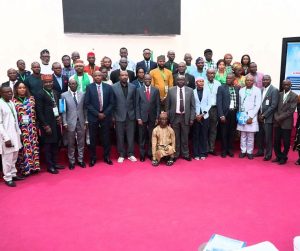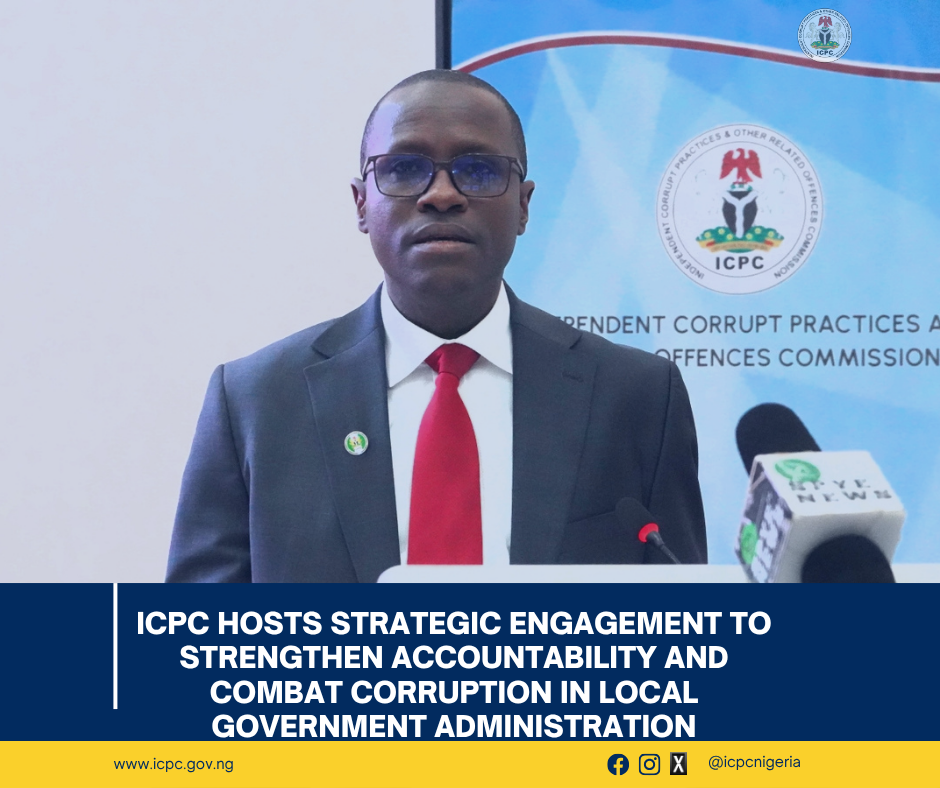The Independent Corrupt Practices and Other Related Offences Commission (ICPC) has reiterated its commitment to enhancing accountability and curbing corruption within Nigeria’s local government systems.
This was declared during a strategic meeting with members of the National Anti-Corruption Coalition (NACC) on the theme Accountability and Corruption Prevention in Local Governments, held at the Commission’s headquarters in Abuja.
Speaking at the event, the Chairman of ICPC, Dr. Musa Adamu Aliyu, SAN, who emphasized the vital role accountable local government councils play in fostering national development, asserted that local governments remain susceptible to numerous forms of corruption, ranging from diversion of public funds, employment of ghost workers, to contract inflation—challenges which severely hinder grassroots development and erode public trust.
Dr. Aliyu underlined the Commission’s broader anti-corruption mandate, which goes beyond investigations and prosecution, and includes preventive measures, public education, and the promotion of integrity across all sectors. He declared the meeting a strategic platform to generate practical and actionable anti-corruption solutions.

“The ICPC fully recognizes the critical role that a robust and accountable local government system plays in national development. Our mandate, as enshrined in the ICPC Act, extends beyond the prosecution of corruption offenders”, he said.
“It encompasses a proactive approach to corruption prevention, public education, and fostering a culture of integrity across all tiers of government and segments of society. This engagement, therefore, is not merely a talk shop; it is a strategic convergence of minds, dedicated to forging practical solutions to a persistent challenge,” Dr. Aliyu stressed.
He concluded his remarks by stressing the urgency of deploying practical strategies to improve financial transparency, strengthen internal control mechanisms, and utilize technology to detect and prevent corruption at the grassroots level.
One of the highlights of the event was a presentation by Dr. Umar Yakubu, CEO of the Center for Fiscal Transparency and Public Integrity, who delivered a paper titled Local Government Accountability Initiatives.
Dr. Yakubu, who outlined five essential elements as preventive mechanisms against corruption at the local level: Financial Management, Open Procurement, Human Resources, Citizen Engagement, and Control of Corruption and emphasized that applying these elements could significantly advance efforts to eliminate corruption in local government systems.
He further called for transparency and proactive disclosure of critical information by local government authorities, urging stakeholders to embrace openness as a core principle in their operations to achieve measurable progress.
Additionally, Mr. Bello Bakori, Deputy Director of ICPC’s Constituency and Executive Project Tracking Initiative, presented a paper on Measures of Combating Corruption in Local Government Councils in Nigeria.
He advocated for a multidimensional and inclusive approach that integrates legal reforms, technological solutions, and active community participation as essential ingredients in the fight against corruption.
The strategic meeting drew participation from ICPC Directors, Commission staff, members of the National Anti-Corruption Coalition, key stakeholders, and members of the media.


